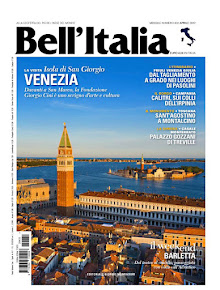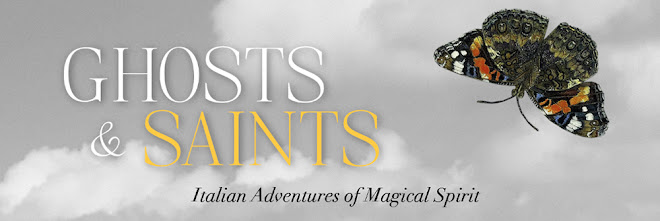New drop on Pink Pangea ~ A personal essay with one hundred years of backstory, on an Italian (American) woman's self-worth. ~
* * *
Cento Anni, A Toast to My Italian Self-Worth
My first amatriciana was in that trattoria I happened upon, a local family style, maybe ten table place. I was killing time, slowly meandering my way toward Stazione Termini to get back on a plane to LA. It was a Sunday. I was hungry, not very bold. I had just had a month and a half in Tuscany with friends in a farmhouse at Tenuta di Spannocchia, a long awaited, very first time ever in Italy. It was Autumn, 1995. Tenuta di Spannocchia was then a little known, once noble land holding complete with aging barons in residence near Sienna not far from San Gimignano. Rustic accommodations really, far outside a small village with local descendents still immersed in the Florentine / Sienese rivalry of the Guelfs and Ghibellines. The Guelfs & Ghibellines!
I had planned everything, drove everywhere. Organic meals cooked by capable women in stone galleys, gregges of sheep in the sienese fields, star studded black nights in the autumn-gilded Etruscan countryside. Friends arrived to share the rambling rustic medieval place; single or in pairs, they ate, drank, fell in love and moved on. Weeks were spent rambling through small Tuscan villages. Evenings we shared communal meals in the large stone dining room of our castle base. I was their host, the first to arrive and the last to leave. Turned out, Tenuta di Spannocchia was an academic study destination for students and professors of archeology – Etruscan specialists come from around the world for a week or more to dig in the surrounding Tuscan fields and villages – looking for clues.
At last, mid-October, I took an overnight in Chiusi to change trains to Rome. Now I was sitting alone in this modest trattoria on a side street in the Esquilino. I’d never done this before. Sitting alone in any restaurant would have been hard enough. I had been to Prague, Paris. But a Sunday in Rome, Italy. Autumn 1995 was the centennial year of my grandmother’s birth. Though I hadn’t any clue of that at the time. Fresh white tablecloths, wide-paned windows to the street, a few families already seated. The trattoria was an urban, family affair with a natural light that imbued the centuries old columned room. The white aproned owner, an ample woman about in her early 60s crossed the room to my table. A matriarch auntie? L’amata nonnina? She looked down on the young solo Italian-American to see what the poor thing would want to eat.
She recited a few pasta choices, only one form of which I recognized. I nodded, ordered the simple pancetta and tomato sauce. But, thinking again, I quickly asked, Could I have it on the rigatoni? A soft frown slowly panned across her face, Say again? You want l’amatriciana with the rigatoni? Me as novice, my voice versus her commanding presence, asking for something instead of taking what's given, like a good granddaughter would.
Years later, it’s not an ample auntie nonna in white apron, but a heavy bellied, heavily tattooed chef holding forth on the floor. I had just arrived in Rome on business. It’s very hot, I’m hungry, and still alone. An early Monday night in a real Roman neighborhood I barely knew. I had three recommended restaurant choices for dinner and I chose him. A few outside tables were already filled. Still, he made me wait at the door. Just another moment more and I would have bolted. Shown the board, I asked a quick clarification and then sat down, changing / choosing the table over the waiter’s suggestion. Water. Wine. The board and the chef reappear.
Allora, what should it be? I countered, Dimmi tu. He eyes me, The carbonara, l’amatriciana or la gricia? A no tomato (sauce) alternative to the famed Roman plate. He saw I was eager. His sullied apron and tattoos now calling the shots. Should we jump right to l’amatriciana, then? Before my nod could even descend he had whisked away the board and that was it…The plate arrived. Perfectly fatty amatriciana on rigatoni giganti. And you were home.
Amatriciana, now and has been, my favorite pasta dish since that (first meal alone in Rome) story. Raffaelina always made it for me in Calitri after having asked only once what my favorite dish was. Things become your favorite thing when you have a positive experience from an elder or parent like person (ie; as substitute of your long lost grandmother, You say to yourself as you write.) 1895 to 1995 ~ Cento anni. Hunh.
Cent’anni is an old Italian idiom. A toast to friendship and prosperity, a toast to family and history; to the lives of those who came before us and the lives we make one hundred years forward. So, the elder zia auntie grandmother type in the 1995 experience in the Rome trattoria, treating you like a VIP for letting you change the pasta to what you wanted, in your broken, your actually non existent Italian, who first gave you the look but let you have it on the rigatoni anyway ~ that became your permission, your mantra. Your (Italian) self worth. That whenever anyone asked what was your favorite, or what you might have, instinctively you went for l’amatriciana even if you weren’t cognitively making the connection each time you responded.
Cent’anni is an old Italian idiom. A toast to friendship and prosperity, a toast to family and history; to the lives of those who came before us and the lives we make one hundred years forward. So, the elder zia auntie grandmother type in the 1995 experience in the Rome trattoria, treating you like a VIP for letting you change the pasta to what you wanted, in your broken, your actually non existent Italian, who first gave you the look but let you have it on the rigatoni anyway ~ that became your permission, your mantra. Your (Italian) self worth. That whenever anyone asked what was your favorite, or what you might have, instinctively you went for l’amatriciana even if you weren’t cognitively making the connection each time you responded.
What is that a sort of Italian subconscious? Yes. I was subconsciously raising a glass to myself with each answer. As in, the Italian Cent’anni.
***
Thanks to the editors at Pink Pangea for their inspiration.
Cover photo Pink Pangea.






















